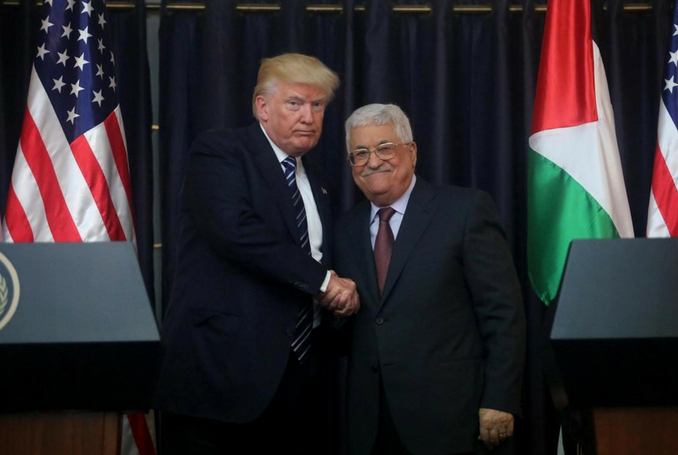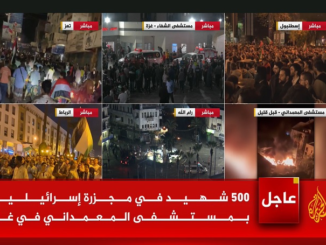
By Ramona Wadi
We still don’t know what US President Donald Trump’s so-called deal of the century looks like. At the UN Security Council meeting last Tuesday, US Ambassador to the international organization, Nikki Haley, only hinted at “thoughtful detail” and recognition “that realities on the ground in the Middle East have changed in powerful and important ways.”
This was enough for Europe to issue a warning that,
“The EU is truly convinced that the achievement of a two-state solution based on the 1967 borders with Jerusalem as the capital of both sides… is the only viable and realistic way to end the conflict and achieve just and lasting peace.”
Russia followed suit, with its Permanent Representative to the UN insisting that,
“No plan will be viable if the internationally-recognized basis for the Middle East settlement is not taken into account and it is crucial to rely on a two-state solution.”
Trump’s plan will not be viable, but neither will the two-state paradigm. It is unrealistic, and international insistence on the hypothesis has contributed to the ongoing Israeli colonization of Palestinian territory. Yet the “two-state solution” is invoked consistently by the Palestinian Authority, without consulting the Palestinian people whose rights will continue to be threatened whether it ends up as Trump’s deal or the two-state compromise being imposed.
In either scenario, the political actors stand to gain at the expense of the people of Palestine. So far the debate has centered on who will own the negotiations narrative and Palestinians are nowhere to be found in this equation.
It has become an issue of Trump’s plan versus the internationally-accepted two-state hypothesis and, most importantly, it is dissociated from the Palestinians, who stand to lose either way. The constant effort to articulate what Palestine entails and what Palestinians want from international demands is making the link between Palestine and Palestinians weaker than ever.
The fact that liberation is no longer discussed as a priority by the PA is proof that the leadership legitimized by the international community displays no loyalty to Palestinian demands. If liberation is deemed an unattainable goal, it is important to look again at the process which has devalued that which would have granted the Palestinian people their rights in favor of intentionally elusive proposals and resolutions which have contributed directly to Israel’s permanent colonization of Palestine.
There is no way that the EU would insist upon the two-state imposition if the outcome granted Palestinians their rights. Likewise, Trump’s deal of the century will spell an alternative form of disaster.
Why is the PA willing to walk away from Trump’s proposal – and rightly so – and yet remain committed blindly to the EU’s obsolete framework? It is possible to exclude both for the simple reason that neither guarantees historic Palestine for the Palestinians. Yet the PA’s refusal to engage with the Palestinian people, let alone convey their demands, marks its existence as negligible were it not for the fact that it creates an illusion of power borrowed from entities that demand its subjugation.
Meanwhile, the Palestinians are likely to remain in their incongruous role for yet another lengthy period. They are waiting while the US and the EU engage in another diplomatic battle with the PA staunchly upholding the right to claim additional political losses. Unfortunately, it is Palestine and its people who will ultimately pay the price for the PA’s disloyalty towards both.
– Ramona Wadi is a staff writer for Middle East Monitor, where this article was originally published. She contributed this article to PalestineChronicle.com.








